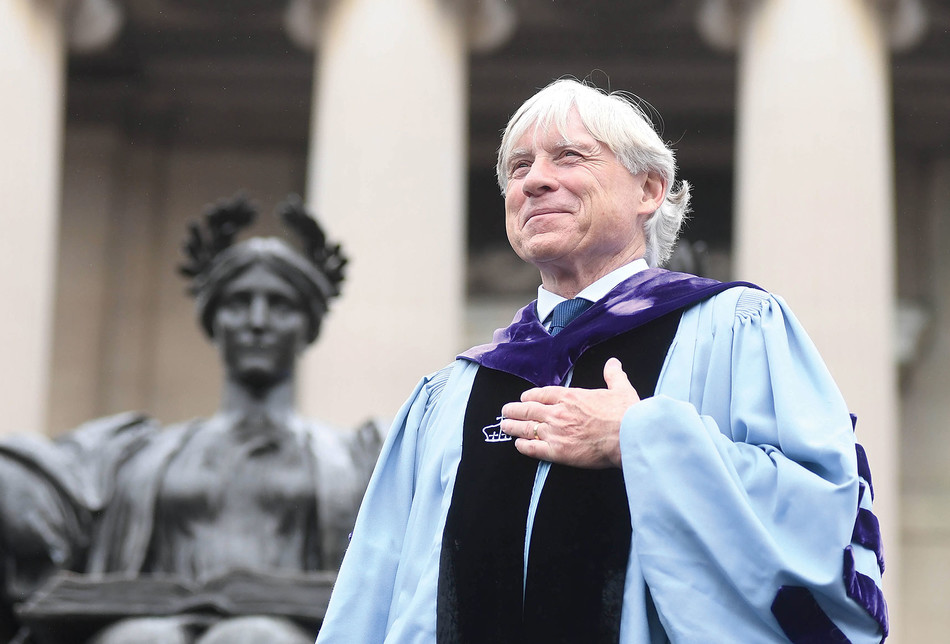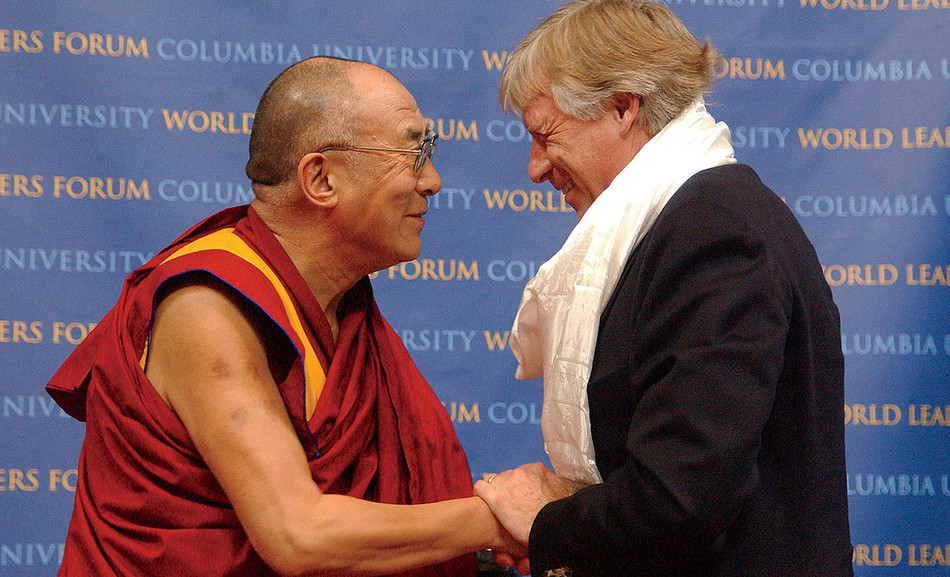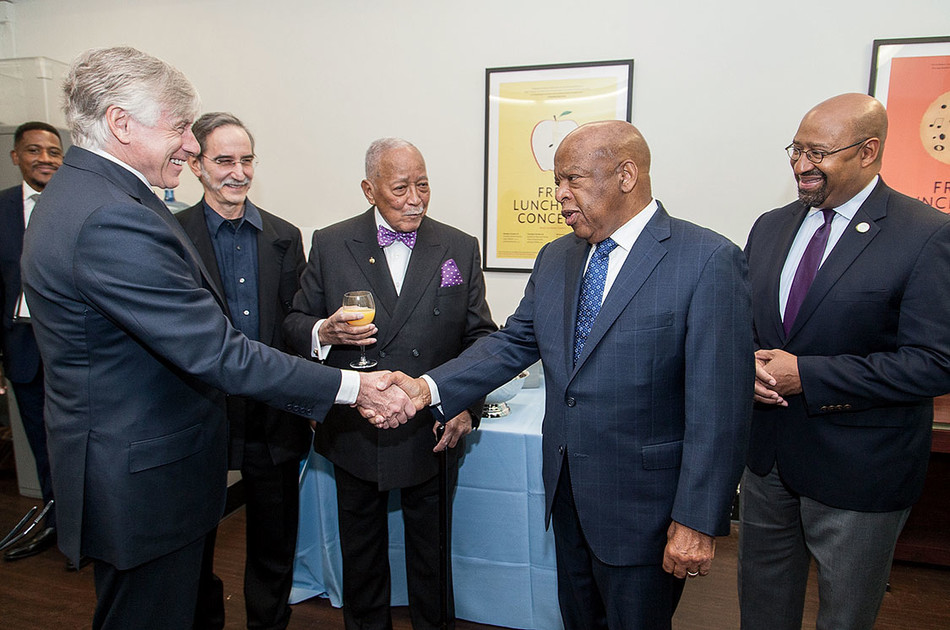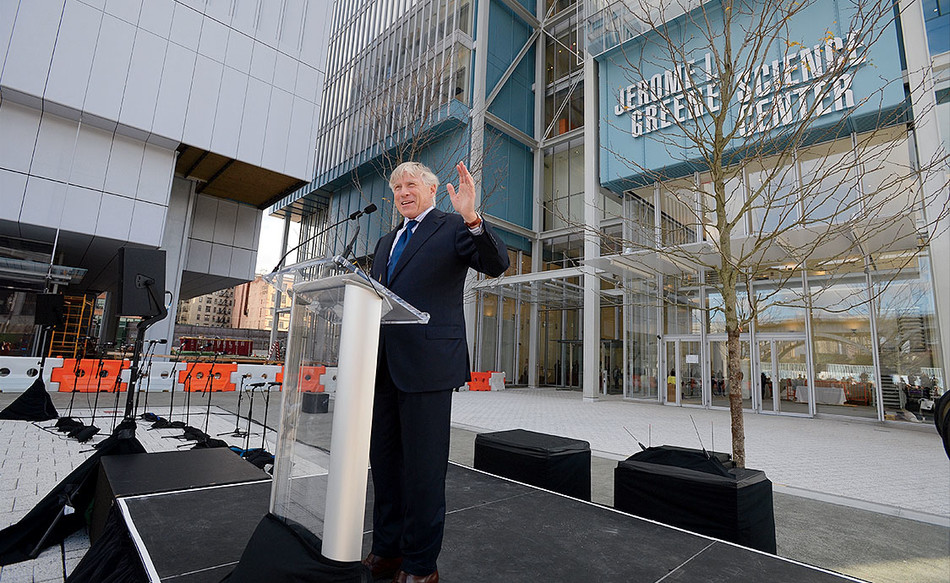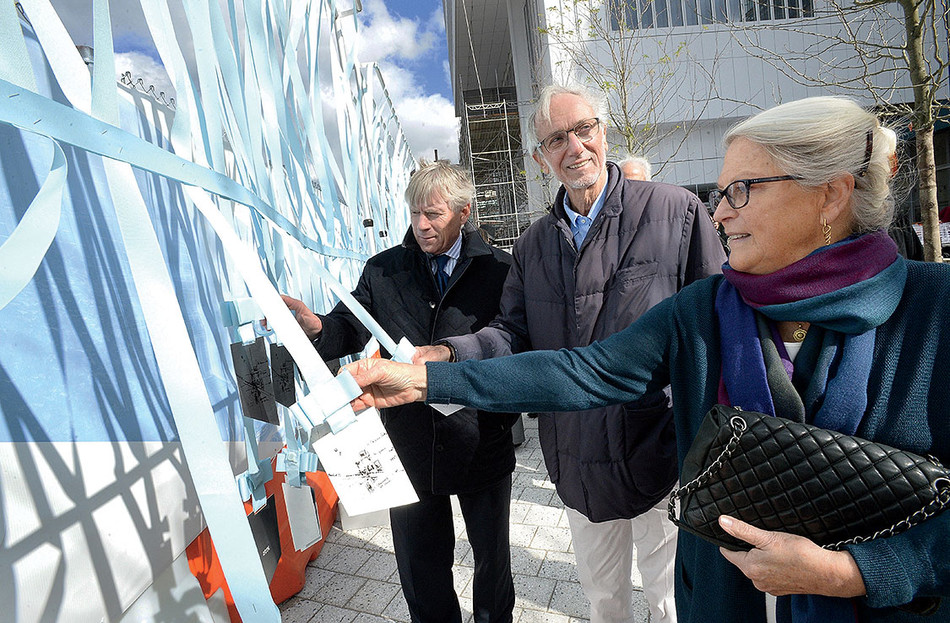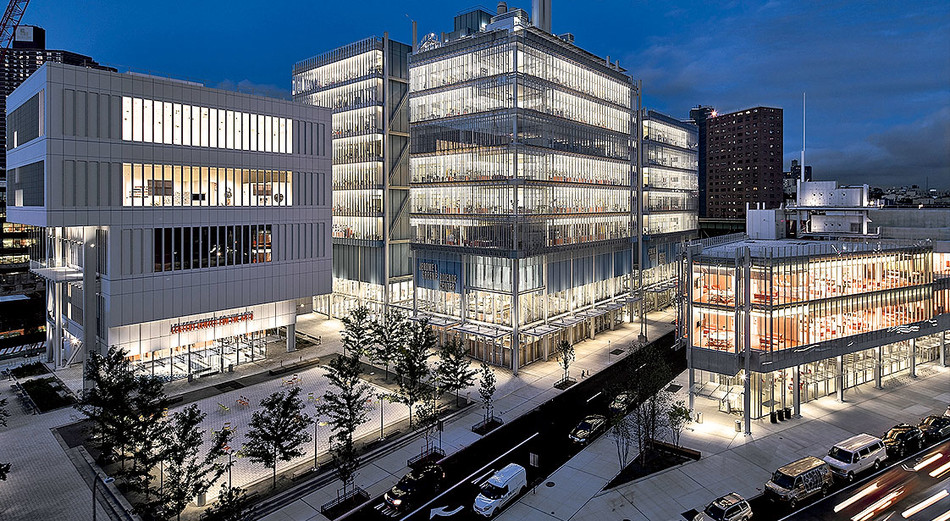When Lee C. Bollinger steps down as president at the end of this academic year, after leading Columbia University for more than two decades, he will bring to a close a historic era for the University, one that has brought extraordinary physical and intellectual transformation.
“Building knowledge, creating space for the exploration of new ideas, and examining what is needed for the betterment of future societies are just some of the themes of Lee’s tenure,” wrote University Trustee co-chairs Lisa Carnoy ’89CC and Jonathan Lavine ’88CC in a statement about Bollinger’s legacy. “But at heart he is an educator, and every new building project, academic initiative, and fundraising campaign that he undertook was in service of creating a world-class environment for learning and teaching … His leadership has had a profound impact on the University and will leave behind a rich foundation upon which a new era for Columbia can flourish.”
When Bollinger was inaugurated on the steps of Low Library on October 3, 2002, he shared his vision for what he called “the quintessential great urban university” and spoke of the need for Columbia to engage more deeply with the outside world while retaining its distinctive academic character. He discussed the rich and dynamic history of Upper Manhattan and the University’s plans to strengthen its ties with its neighbors. He spoke of his commitment to promoting diversity among students, faculty, and staff and announced his intention to expand the University’s physical footprint so that it had the space to grow as a hub for new knowledge and life-changing innovations. Over the next two decades, these goals would fundamentally reshape the University.
Under Bollinger’s leadership, the University has built on its strengths as a research institution with a thriving liberal-arts program and expanded into new areas. Columbia has invested in the arts and sciences and its celebrated Core Curriculum while also launching ambitious cross-disciplinary programs in areas like data science, neuroscience, the arts, cancer research and care, the humanities, journalism, and precision medicine. Government funding for research at Columbia, including from the National Institutes of Health and the National Science Foundation, has grown considerably during his tenure.
Central to Bollinger’s vision for the future was his plan to address the University’s space constraints. Careful deliberations early in his tenure resulted in proposals for a campus in a former industrial neighborhood of West Harlem spanning from 125th Street to 133rd Street between Broadway and 12th Avenue. The plan proceeded after Columbia committed to investing tens of millions of dollars in local affordable housing and educational, health, and other benefits, as negotiated with West Harlem residents as part of a community-benefits agreement.
In 2017, Columbia opened the first two buildings on its Manhattanville campus: the Jerome L. Greene Science Center, which is the home of the Zuckerman Mind Brain Behavior Institute, and the Lenfest Center for the Arts. The Forum, a multi-use venue, followed in 2018, and earlier this year the first phase of construction ended when Columbia Business School moved into Henry R. Kravis Hall and David Geffen Hall.
While the construction of the Manhattanville campus represents Columbia’s most ambitious physical expansion in more than a century, the University has also renovated or expanded 2.8 million square feet of educational space on the Morningside Heights and medical-center campuses during Bollinger’s presidency.
Bollinger, a lifelong advocate for diversity in higher education, oversaw a $185 million faculty-diversity initiative and has transformed the University’s leadership through his appointment of record numbers of women to deanships and other high-level positions. He elevated Columbia’s international profile through the establishment of nine overseas research hubs, called Columbia Global Centers, in Africa, Asia, Europe, and South America and underscored his commitment to deepening academia’s engagement with the outside world by championing research programs that address real-world issues like climate change, sustainable development, and the protection of free speech. In 2017, the University launched Columbia World Projects to support partnerships with governments, businesses, and other external organizations with the goal of translating the University’s research and scholarship capabilities into tangible benefits for people around the world. And in 2020, the University announced the creation of the Columbia Climate School, the first school in the nation devoted to addressing the global climate crisis.
Under Bollinger, the University has also made major investments in strengthening its relationship with alumni, most notably by establishing the Columbia Alumni Association, a global network that links 375,000 alumni in more than one hundred countries, and by opening the Columbia Alumni Center on West 113th Street, which provides a dedicated space for graduates to meet, relax, and access University resources. Alumni and friends of the University have donated more than $13 billion to Columbia during Bollinger’s tenure, supporting undergraduate education and research, student advising, capital projects, new professorships, athletics, and financial aid across Columbia’s schools. These efforts now include the Columbia Student Support Initiative, a university-wide plan announced last year to expand access and reduce student debt by raising $1.4 billion by 2025.
In an e-mail to the Columbia community, Bollinger wrote, “I cannot begin to express what it has meant to me to serve in this role for this magnificent University for over two decades. Certainly, it has been a defining experience of my life. It has also been an especially high pleasure to do so at the beginning of the new century and in a period of rising intellectual excellence across the institution. No university in the world is more committed to the life of the mind or possessed of the will to bring knowledge and ideas to the service of humanity.”
The Board of Trustees has established a search committee to oversee the process of selecting Columbia’s next president. The committee, led by Lisa Carnoy, includes Nobel laureate neuroscientist Richard Axel ’67CC; professor of medicine and University Senate chair Jeanine D’Armiento; English professor and scholar of African-American studies Farah Jasmine Griffin; biomedical-engineering professor X. Edward Guo; Brandeis University president Ronald D. Liebowitz ’85GSAS; Trustee Emerita Esta Stecher ’82LAW, as well as Jonathan Lavine and seven other Trustees — Rolando T. Acosta ’79CC, ’82LAW, Abigail Black Elbaum ’92CC, ’94BUS, Mark Gallogly ’86BUS, Joseph A. Greenaway Jr. ’78CC, David J. Greenwald ’83LAW, Wanda Holland Greene ’89CC, ’91TC, and Claire Shipman ’86CC, ’94SIPA.
The search committee will manage the recruitment and assessment of candidates, presenting finalists to the full Board of Trustees, whose members will then confer with the Executive Committee of the University Senate to reach consensus on the ultimate nominee. The Trustees have also established several advisory committees representing faculty, students, alumni, and staff from across the University to solicit input on the qualities that Columbia’s next president should possess.
Bollinger, who is also the first Seth Low Professor of the University, a member of the Columbia Law School faculty, and a prominent First Amendment scholar, will continue to teach at the University and pursue his research and scholarship full-time.
Looking ahead to the future, he says: “Columbia is notably agile, creative, fresh, and experimental. I am certain that the conditions are present for an even more brilliant future in the decades ahead. And I will leave confident that our potential and aspirations will be realized.”
